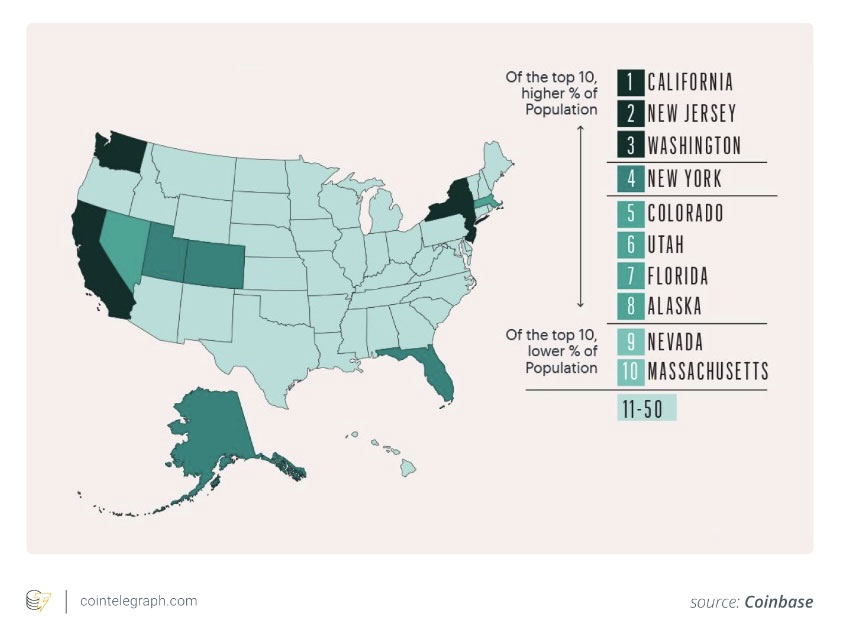A state commission recommended that New Hampshire eliminate the gray area in which cryptocurrency companies currently operate.
New Hampshire is on the verge of becoming a national leader in cryptocurrency if its legislature follows through on recommendations made by a commission appointed by Governor Chris Sununu. The recommendations would establish a legal framework for blockchain and crypto businesses in the state, providing clarity and certainty to entrepreneurs and regulators while avoiding the onerous and largely pointless special rules federal regulators and members of Congress want to impose on the industry. The proposed rules would also protect consumers, depositors and investors.
Blockchain businesses presently exist in something of a legal gray area in the United States. Congress has provided little guidance to the regulatory agencies, resulting in confusion and difficulties in maintaining compliance. This adds unnecessary costs and sometimes causes companies to do contradictory things. Responsibility for regulating the companies is split between the Securities and Exchange Commission and the Commodity Futures Trading Commission.
Stay in the know on crypto by frequently visiting Crypto News Today
While these agencies regulate different things, they have different approaches and it’s not even clear if one agency or the other has priority. Due to the lack of clarity, many cryptocurrency exchanges and businesses have moved their operations and corporate domiciles out of the United States to countries with fewer regulations. Bermuda, the Bahamas, Antigua and Barbuda and Malta are popular offshoring sites.
Coinbase CEO Brian Armstrong said last year that regulatory uncertainty drove 95 percent of trading offshore. “Punishing U.S. companies … makes no sense,” he tweeted. Circle moved its exchange to Bermuda in 2019, while Fidelity Investments had to offer an exchange-traded Bitcoin fund in Canada in 2021. Digital Chamber of Congress president Perianne Boring also attributed offshoring to uncertainty, saying, “they’re not willing to operate in a gray area with potential enforcement hanging over their head.”
New Hampshire’s framework would remove that gray area, setting the rules on how digital assets should be treated by regulators — as securities, commodities or currencies — and help ensure they follow Anti-Money Laundering (AML) and fraud rules. While officials will have their work cut out to lure crypto businesses away from the Caribbean, new startups will benefit, as the new rules could attract more risk-averse investors.
The confusion and uncertainty are not only bad for the industry, which is continuing to grow. The draconian rules federal agencies and members of Congress want to impose could be worse. They will torpedo an industry that has important implications for the economy — not just people trading Dogecoin or pictures of apes. For instance, some companies are using blockchain ledgers to tokenize real estate to help people become homeowners without the huge down payment and monthly cost of a traditional mortgage. In the long run, strangling the blockchain industry in its cradle will also hurt American interests — much of the country’s “soft power” is linked to the fact that our financial institutions are well-regulated and have access to a lot of capital, while the U.S. dollar is a global reserve currency. As crypto grows in popularity and gets increasing attention from foreign governments, an attenuated domestic industry could allow our soft power to dissipate.
Stay in the know on crypto by frequently visiting Crypto News Today
In part, much of the confusion stems from suspicion of cryptocurrency. A few high-profile cases that have resulted in criminal charges — such as the Silk Road marketplace and FTX — have created a perception that cryptocurrency is used merely for the “dark web,” Ponzi schemes and other illegal activities. Therefore, businesses trading in it need more regulation and oversight than banks and other firms. But the reality, as the commission pointed out, is that more financial crimes involve conventional currencies and firms. (Since 2016, Wells Fargo has paid more than $7 billion in fines and settlements related to illegal activity.)
To put blockchain-based businesses on a sound legal footing, the commission made three main recommendations: The state should permit limited liability protection for decentralized autonomous organizations (DAOs), establish a “blockchain dispute docket” in the court system and get committees of the legislature to update relevant legal codes, like the Uniform Commercial Code, the state’s securities law and state banking laws.
Another concern that helps distinguish New Hampshire from skeptical federal regulators is its commitment to privacy and private property. The commission noted that the Financial Crimes Enforcement Network’s proposed rules require financial institutions to record and verify the identities of anyone involved in cryptocurrency transactions merely because of the possibility that cryptocurrency could be used to finance crime or terrorism. This is not only an absurd requirement that does not apply to other transactions but in itself creates a vulnerability cybercriminals could exploit, giving them access to a massive database of personal information.

The commission correctly recommended, “As financial institutions or money service businesses offer platforms to provide Crypto-asset services to clients that own crypto assets, these centralized organizations should be subject to the same [Bank Secrecy Act] BSA/AML rules as financial institutions that offer services to customers with cash … there should be an exceptionally high standard of proof before that BSA/AML regime … imposes greater burdens on crypto service businesses.”
New Hampshire cryptocurrency advocate and Tron DAO policy lead Andrew Hemingway approves of the commission’s work. “The ‘live free or die’ spirit is evident in the commission’s perspectives and recommendations,” he said in an email to me. “This spirit is also harmonious with the ethos of cryptocurrency.”
Money laundering is a serious crime, but it is not unique to cryptocurrency. Law enforcement officials have said that preventing it is easier with crypto, because of the Blockchain’s transparency. If New Hampshire implements the commission’s recommendations, it will become a leader in the digital asset economy and serve as a guide to federal agencies and legislators on how to do it right.![]()
Read More at COINTELEGRAPH
Please Read Essential Disclaimer Information Here.
© 2024 Crypto Caster provides information. CryptoCaster.world does not provide investment advice. Do your research before taking a market position on the purchase of cryptocurrency and other asset classes. Past performance of any asset is not indicative of future results. All rights reserved.
Contribute to CryptoCaster℠ Via Metamask or favorite wallet. Send Coin/Token to Addresses Provided Below.
Thank you!
BTC – bc1qgdnd752esyl4jv6nhz3ypuzwa6wav9wuzaeg9g
ETH – 0x7D8D76E60bFF59c5295Aa1b39D651f6735D6413D
MATIC – 0x7D8D76E60bFF59c5295Aa1b39D651f6735D6413D
LITECOIN – ltc1qxsgp5fykl0007hnwgl93zr9vngwd2jxwlddvqt






